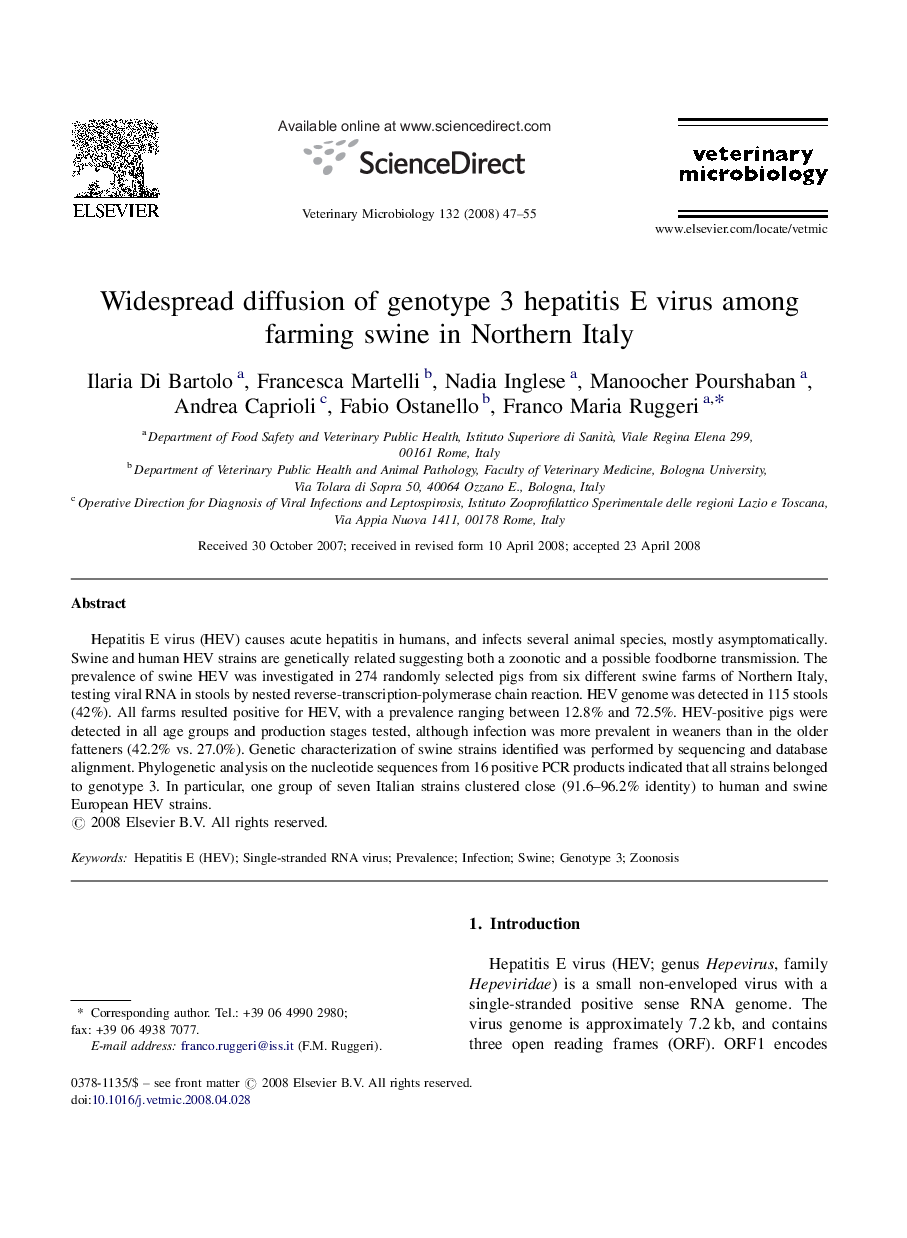| Article ID | Journal | Published Year | Pages | File Type |
|---|---|---|---|---|
| 2468719 | Veterinary Microbiology | 2008 | 9 Pages |
Hepatitis E virus (HEV) causes acute hepatitis in humans, and infects several animal species, mostly asymptomatically. Swine and human HEV strains are genetically related suggesting both a zoonotic and a possible foodborne transmission. The prevalence of swine HEV was investigated in 274 randomly selected pigs from six different swine farms of Northern Italy, testing viral RNA in stools by nested reverse-transcription-polymerase chain reaction. HEV genome was detected in 115 stools (42%). All farms resulted positive for HEV, with a prevalence ranging between 12.8% and 72.5%. HEV-positive pigs were detected in all age groups and production stages tested, although infection was more prevalent in weaners than in the older fatteners (42.2% vs. 27.0%). Genetic characterization of swine strains identified was performed by sequencing and database alignment. Phylogenetic analysis on the nucleotide sequences from 16 positive PCR products indicated that all strains belonged to genotype 3. In particular, one group of seven Italian strains clustered close (91.6–96.2% identity) to human and swine European HEV strains.
